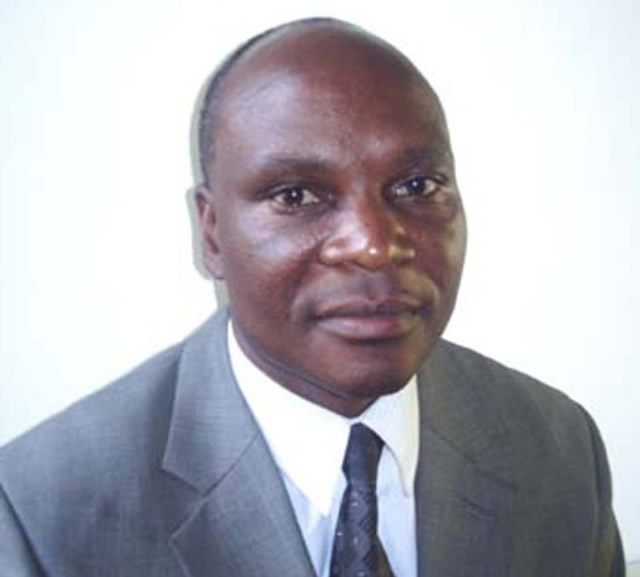‘Beneficiation is non-negotiable’

Business Reporter
Discussions around beneficiation of minerals should not be on whether this should be done or not, but how it can be achieved, Mines and Mining Development Minister Walter Chidhakwa said.
Minister Chidhakwa said this in his presentation delivered at the mining beneficiation conference in Victoria Falls last week, themed, “Beneficiation: Maximising value from Zimbabwe’s Minerals”.
“I request that the discussions not be about whether we should value add and beneficiate. Instead we should discuss how we should do it and how quickly we should put it in place,” Minister Chidhakwa.
The mines minister implored stakeholders to focus the discussions on identifying the pitfalls along this path, but more importantly concentrating on how to overcome the difficulties.
Minister Chidhakwa’s remarks come when Government has designated mining the centrepiece of its economic growth programme expected to ignite the “economic miracle that must happen now”.
While industry is undoubtedly aware and fully appreciative of the irreversibility of the beneficiation policy, there appear to be qualms about the intense focus, especially on platinum, and the timing considering that there are concerns around power supply and the investor.
This came out clear at the mining beneficiation conference that while mining firms are agreeable to the policy, they believe there are several opportunities in other minerals.
While conditions and resources may not permit beneficiation by the local firms, it must not necessarily be left to them alone but should be open to other investors provided they identify the opportunities.
It was also noted that the country needed to identify its niche within the beneficiation value chain and concentrate on this although extensive research needed to be instituted into what and how this can be done, who should do it and the cost of doing it.
However, what came out clear from a Government perspective was that the issue of beneficiation and value addition of the country’s minerals was not a matter for compromise and all stakeholders needed to agree on a value addition and beneficiation programme that everyone must commit to regardless of the constraints.
And rightly so, Government feels if it is not now, then when? To that end, Minister Chidhakwa said Government had identified low hanging fruits to get the beneficiation and value agenda going and identified minerals such as platinum, chrome and iron ore.
He said Government is not pushing for the refinement of platinum as an end in itself but as the means to an end.
“We dream about catalytic converters branded ‘A Product of Zimbabwe’,” he said.
“This project is currently underway, with the ministry in the throes of final selection of the partner who will work with us”.
“On diamond cutting and polishing: We have more than 20 cutting and polishing companies which have been waiting for a more conducive environment to progress their business.
“We are currently working on infrastructure to house the Diamond Exchange within the vicinity of the “new city” in Mt Hampden,” he said.
Part of the drive to sustain the beneficiation and value addition agenda include resuscitation of old mines and starting new projects through the Zimbabwe Mining Development Corporation.
Gold,copper mines and even platinum group metal opportunities initiatives present numerous opportunities being pursued with a view to achieve value addition.
The push for beneficiation comes amid strong feeling in Government that there has been little benefit for the country from mining, which for instance, produced cotton lint and little fabric, raw tobacco and few cigarettes, platinum and no catalytic converters.
It is against this background the Finance and Economic Development Minister graphically demonstrated the feeling of betrayal within Government when satirically, he said Government will not pursue policies that kill the goose that lays the golden eggs, but for its part, the finance minister pointed out the goose must also not take with it all the golden eggs it lays as seems to be the case.
As such, Government is focused on adopting new employment intensive mining methods so that it achieves its goal of employment creation while it maximises benefits accruing from extractive resources and ultimately avoid pitfalls of the so called resource curse.
“Even more important for us is that we empower our people through the resources we have. Our contribution as a people is our resource and we welcome additional capital to mine it,” the minister said.
He said value addition and beneficiation also deliver value added incomes for creating a middle class which provides the effective demand that drives the economy which Zimbabwe aspires to have.
The pursuit for a beneficiation and value addition policy by Zimbabwe also falls in line with African Union’s vision that African countries should, more than ever before, benefit more from its natural resources to change the face of its socio-economic landscape, which has generally been dubbed agenda 2063.
To that end, Botswana and South Africa have in the past few years been incrementally working at legislation to ensure their economies benefit more from value added mineral export in what has helped grow the industry and guarantee the future of the firms.
Government feels there is no justification in the US$1,7 billion revenue, on average that the country grosses from raw minerals per year yet value addition has potential to increase such value by a factor of 25 percent or more depending on the extent of beneficiation.









Comments